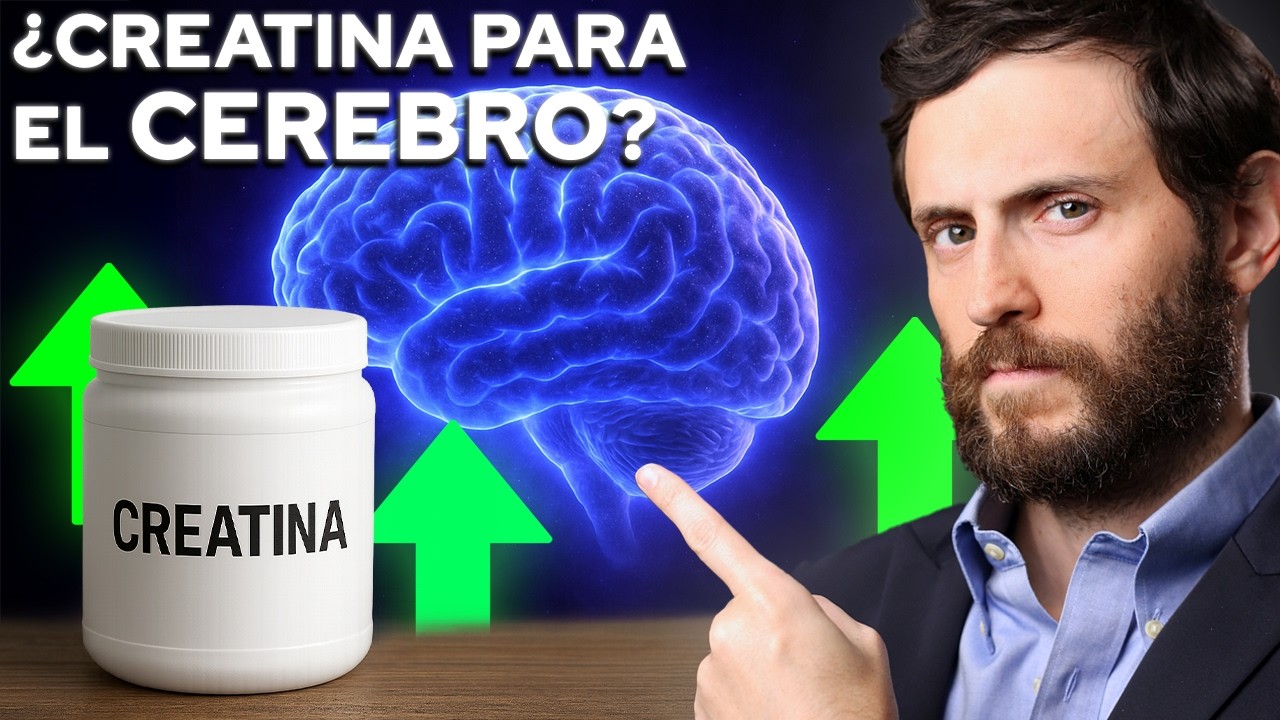10 Things Nobody Tells You About Creatine
Summary
TLDRThis video script reveals lesser-known benefits of creatine beyond muscle growth and strength. It discusses creatine's impact on cognitive function, mental health, bone health, inflammation, muscle recovery, athletic performance, water retention, diabetes management, blood pressure, body fat reduction, and neurological conditions. It also emphasizes the importance of diet and exercise alongside creatine supplementation for optimal results.
Takeaways
- 🧠 Creatine can improve cognitive function, including memory and reasoning.
- 💪 Creatine supplementation can increase muscle mass and strength.
- 🦴 It can enhance bone health by increasing bone density and calcium absorption.
- 🔥 Creatine is linked to reduced inflammation and oxidative stress.
- 🏋️♂️ It helps reduce muscle soreness and fatigue by increasing phosphocreatine production.
- 🏃♂️ Creatine improves athletic performance, including strength, power, and endurance.
- 💧 Water retention is a factor in creatine's muscle growth effects.
- 📉 It may assist in diabetes management by improving insulin sensitivity and glucose control.
- 🩸 Creatine can help reduce blood pressure and improve vascular health.
- 🏋️♀️ It contributes to reduced body fat while increasing lean muscle mass.
- 🧠 Creatine has potential neuroprotective effects and may treat neurological conditions.
Q & A
What are the lesser-known benefits of creatine beyond muscle mass and strength?
-Creatine can improve cognitive function, reduce stress and anxiety, improve mood and sleep quality, enhance bone health, reduce inflammation, aid cellular antioxidant activity, reduce muscle soreness and fatigue, improve athletic performance, contribute to muscle growth, help with diabetes management, reduce blood pressure, and potentially aid in the treatment of neurological diseases.
How does creatine improve cognitive function?
-Creatine improves cognitive function by increasing brain energy metabolism and memory, as demonstrated in a study from the University of Sydney.
What role does creatine play in bone health?
-Creatine helps improve bone health by increasing muscle mass, which in turn leads to increased bone density. It also increases calcium absorption and protein synthesis, both of which are important for strong bones.
How does creatine reduce inflammation?
-Creatine reduces inflammation by decreasing the production of pro-inflammatory cytokines such as tumor necrosis factor alpha and interleukin-6, and by reducing markers of oxidative stress.
How does creatine help reduce muscle soreness and fatigue?
-Creatine reduces muscle soreness and fatigue by increasing the production of phosphocreatine, which helps delay fatigue by providing muscles with more energy, and by reducing muscle damage.
What impact does creatine have on athletic performance?
-Creatine improves athletic performance by enhancing strength, power, and endurance, leading to better performance in various sports and quicker reaction times.
How does creatine contribute to muscle growth?
-Creatine contributes to muscle growth by increasing water retention in muscle cells, which increases anabolic signaling and protein synthesis, leading to a higher rate of muscle protein synthesis.
What is the relationship between creatine and diabetes management?
-Creatine has been linked to an improvement in insulin sensitivity and glucose control, which can be beneficial for those with diabetes, due to its ability to increase phosphocreatine production and assist with glucose uptake in muscle cells.
How does creatine help reduce blood pressure?
-Creatine helps reduce blood pressure by increasing the efficiency of the heart muscle, leading to a decrease in heart rate and blood pressure.
What effect does creatine have on body composition?
-Creatine can lead to an increase in lean body mass while decreasing fat mass, improving overall body composition. It does this by increasing muscle mass, which raises the resting metabolic rate and leads to more calories being burned throughout the day.
How might creatine be beneficial for neurological conditions?
-Creatine has shown neuroprotective effects in animal models of neurodegenerative diseases like Alzheimer's and Parkinson's, and may be beneficial in treating other neurological conditions. It helps by increasing phosphocreatine levels in the brain, supplying energy that may be beneficial in treating these diseases.
Outlines

This section is available to paid users only. Please upgrade to access this part.
Upgrade NowMindmap

This section is available to paid users only. Please upgrade to access this part.
Upgrade NowKeywords

This section is available to paid users only. Please upgrade to access this part.
Upgrade NowHighlights

This section is available to paid users only. Please upgrade to access this part.
Upgrade NowTranscripts

This section is available to paid users only. Please upgrade to access this part.
Upgrade NowBrowse More Related Video
5.0 / 5 (0 votes)





